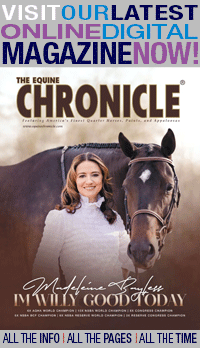From The Publisher
Click here to read the complete article
The Best interest of…
 While watching a recap of the first round of the NFL draft on ESPN this morning, there was an interview with NFL Commissioner Roger Goodell that was quite interesting. Being the head of the most popular sport in America certainly comes with its challenges. Goodell was asked a few questions relating to the scandals that rocked the NFL in 2014-15 such as Deflategate, violence by players against women, Aaron Hernandez’ murder trial, and drug use. He answered all with the direct responses and aplomb you would expect from the CEO of a multi-billion dollar corporation.
While watching a recap of the first round of the NFL draft on ESPN this morning, there was an interview with NFL Commissioner Roger Goodell that was quite interesting. Being the head of the most popular sport in America certainly comes with its challenges. Goodell was asked a few questions relating to the scandals that rocked the NFL in 2014-15 such as Deflategate, violence by players against women, Aaron Hernandez’ murder trial, and drug use. He answered all with the direct responses and aplomb you would expect from the CEO of a multi-billion dollar corporation.
The reporter then asked him about his relationship with DeMaurice Smith, the head of the player’s union, and in particular their adversarial roles as the representative of the owners (Goodell) and representative of the players (Smith). Goodell said that even though they represented different factions of the league, he felt both understood the need to act in the best interests of the NFL. He went on to say that they had frequent discussions and even though they disagreed on some issues, they still agreed that all rules and policies affecting everyone involved in professional football should ultimately help make the league stronger. I’m paraphrasing him here, but that is what I took from that segment of the interview.
AQHA is similar to the NFL but on a much smaller scale. It is the largest single-breed registry in the world. It is a leader on many equine issues and many other smaller registries follow AQHA’s policies regarding competition, registry, etc. Just like the NFL, AQHA has many constituencies that are constantly vying for attention or trying to affect policy. I am sure some suggestions they receive from these groups are excellent, others good, and some terrible. The challenge for any leader is to sift through those suggestions and demands and determine what is in the best interest of the organization. A good leader has the knowledge to decipher the good from the bad and the skillset to implement policies, whether popular or unpopular, then explain how those policies will help AQHA become a better organization with a bright future.
As we all know, AQHA has had a turnover in senior management recently. The past several years of declining membership, registrations, and participation rates were clear signs that new leadership was needed. There will most certainly be new policies and ideas implemented over the coming years. Some will be popular while others will be derided by certain segments of our sport. However, after the past decade of losses, of which we all complained about the lack of leadership at AQHA, we can’t complain now when the new leaders are trying to do something that, in their opinion, will not only help ensure AQHA’s existence for the foreseeable future, but also help it thrive.
Like Roger Goodell said in that interview, we can talk about the issues facing our sport and we may sometimes disagree on the best course of action, but in the end we need to do what’s best for the organization, our industry and, ultimately, the horses we all love.










